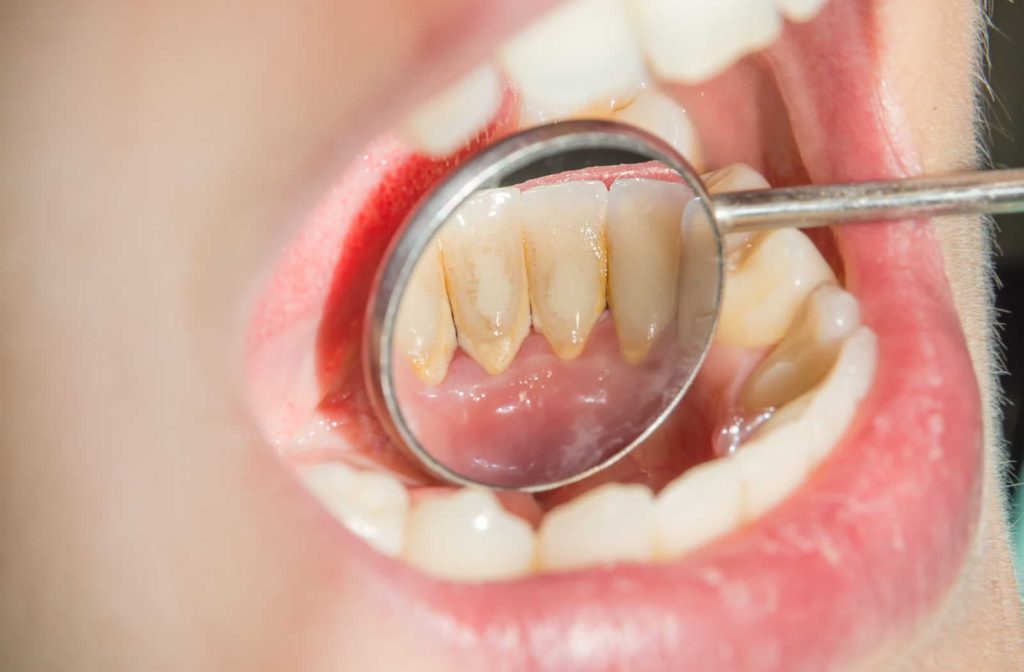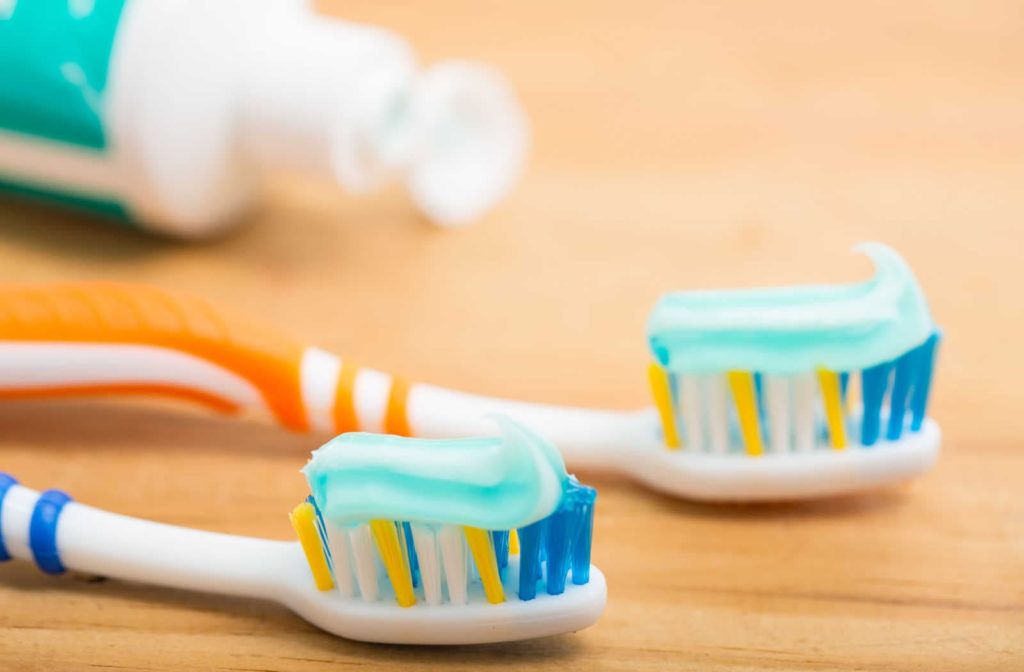Maintaining proper oral hygiene is important for overall health and well-being. Brushing your teeth twice a day is a simple yet effective way to preserve the health of your teeth and gums.
But what can happen if you don’t brush your teeth? Not brushing your teeth regularly can lead to various dental health complications, including:
- Cavities
- Gum disease
- Bad breath
- Abscesses
- Other soft tissue lesions
You can maintain proper oral hygiene by brushing twice a day, flossing regularly, and visiting Cooper Dental for regular dental exams and cleanings.
Why Is It Important to Brush Your Teeth?
Let’s start with the basics. What is the importance of brushing your teeth? The answer is simple: to avoid plaque buildup.
Plaque is a sticky, colourless film of bacteria that constantly forms on our teeth. When we eat or drink, the bacteria in our mouth feed on the sugars in our food, producing acid that eats away at tooth enamel. This acid can cause cavities over time, leading to tooth decay and loss.
Plaque can also harden into tartar, which can form along the gum line and cause periodontal disease. Periodontal disease, or gum disease, is a serious condition that can lead to:
- Inflamed and irritated gums
- Gum recession
- Tooth and bone loss
Finally, brushing our teeth aids in the removal of food particles that can become trapped in our teeth, resulting in bad breath and other oral health issues.

How Long Does It Take for Plaque to Build Up?
So, how long does it take plaque to form? The answer may surprise you.
- Plaque can form on teeth as soon as one day after brushing.
- After two days, plaque can begin to decalcify dentin, softening and weakening teeth and making them more susceptible to decay.
- If you go a week without brushing your teeth, not only can it start the decaying process, but you’re also putting yourself at risk for a range of dental health problems, including cavities, gum disease, and bad breath.
Dental Health Problems Caused by Not Brushing Your Teeth
Cavities
Cavities are one of the most common dental health issues caused by a lack of brushing.
When you eat sugary or starchy foods, the bacteria in your mouth feed on the particles and produce acid, which erodes the enamel on your teeth.
If this process is not stopped, it can cause a hole or cavity in your tooth. Cavities, if left untreated, can cause tooth loss or necessitate more invasive treatments such as a root canal.
Gum Disease
Another common issue caused by poor oral hygiene is gum disease. Plaque on your teeth and along the gumline can irritate and inflame your gums, resulting in gingivitis.
Gingivitis symptoms include:
- Bleeding gums
- Bad breath
- Red, swollen gums
Gingivitis, if left untreated, can progress to periodontitis, a more severe gum infection that can result in tooth or bone loss.
Bad Breath
Bad breath is also a common issue caused by not brushing your teeth. The bacteria that builds up on your teeth and gums can create a strong, unpleasant smell in your mouth.
Bad breath can be a sign of more serious dental issues, such as gum disease or tooth decay, or even indicate further medical problems, including nasal issues, infections, and digestive issues. If you’re experiencing bad breath even with regular brushing, visit your dentist for an exam.
Creating Healthy Oral Hygiene Habits
The good news is that developing good dental hygiene habits is relatively simple. Here are some straightforward steps you can take:
- Brush your teeth twice a day for about 2 minutes with a non-abrasive fluoride toothpaste. Fluoride is a mineral that aids in the strengthening of tooth enamel and the prevention of cavities.
- Floss at least once a day (or use flossing alternatives such as a water flosser or interdental pick). Flossing aids in the removal of food particles and plaque from between our teeth, where your toothbrush cannot reach.
- Consider using non-alcohol mouthrinse to target the bad bacteria in your mouth and strengthen teeth.
- Visit your dentist for regular dental exams and cleanings. Your dentist can help identify and treat any dental health problems before they become more serious.
- Eat a low-sugar, high-nutrient, alkaline-oriented diet rich in calcium and vitamin D, which are essential for strong teeth and bones.
- Tobacco should be avoided. Tobacco use and smoking can increase your risk of gum disease and other oral health issues.
Visit Cooper Dental for Your Next Exam & Cleaning
Not brushing your teeth regularly can lead to a variety of serious dental health issues. To avoid these issues, it is important to maintain a consistent oral hygiene routine that includes brushing your teeth twice a day, flossing daily, and visiting your dentist regularly.
At Cooper Dental in downtown or SW Calgary, we’re committed to helping our patients achieve optimal oral health. Whether you need a routine dental exam or more advanced dental care, our experienced team of dental professionals is here to help.
If you’re due for your next dental exam and cleaning, book an appointment with our experienced team.




